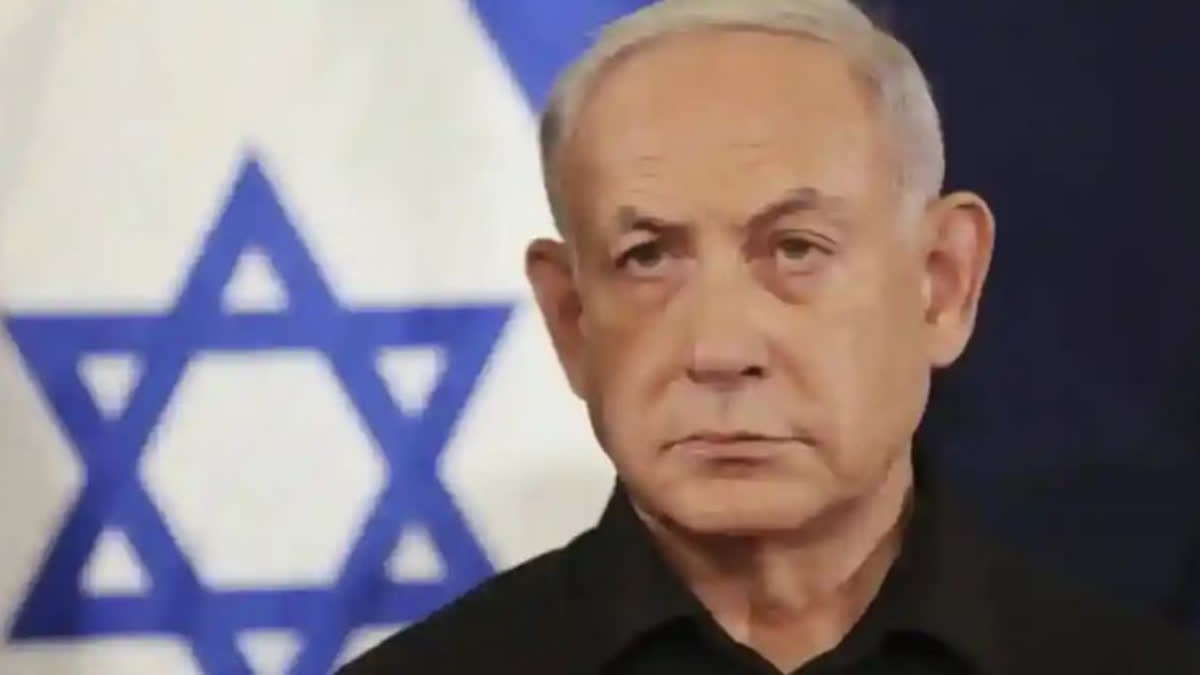Tel Aviv: Israeli officials said that the war cabinet wants tit-for-tat against Iran, but it is undecided over the timing and scale of any such response.
The war cabinet's decision came less than 24 hours after Iran launched an unprecedented assault against Israel which saw firing of some 350 ballistic missiles, cruise missiles and drones at Israel on Saturday night.
Accordinf to Isarael's IDF, 99% of aerial attacks were successfully intercepted. War cabinet minister Benny Gantz and his National Unity party colleague Gadi Eisenkot, an observer in the war cabinet, proposed striking back at Iran.
Their suggestion was firmly turned down by Prime Minister Benjamin Netanyahu, Defense Minister Yoav Gallant, IDF Chief Herzi Halevi, and others. Israel's decision is believed to be taken to relieve itself of the the strain of undertaking simultaneous action, when the IDF was busy in intercepting Iran’s incoming missiles and drones.
The success of Israel’s air-defense systems became evident as gradually it became clear that the Iranian onslaught had caused little damage. At the same time, Israel explored possibilities of some kind of 'strategic pact' with the US against Iran.
Foreign Minister Israel Katz spoke with British Foreign Secretary David Cameron and French Foreign Minister Stéphane Séjourné and thanked them for their support and assistance in thwarting the Iranian attack on Israel last night.
“However, I emphasized: Israel, like any other country, is committed to defend its citizens,” said Katz in a post on X.
Israel maintained that it has the right to self-defense following Iran’s aerial assault, and said that “Iran must pay a price for its aggression.”
According to Israel, the 'initial price' must be the immediate recognition of the Iranian Revolutionary Guard Corps — the massive paramilitary force which works at the instruction of Iranian supreme leader Ayatollah Ali Khamenei.
“Last night, a large-scale and unprecedented attack — consisting of hundreds of drones, cruise missiles and ballistic missiles — was launched by Iran against the State of Israel,” said the ministry in a statement.
“This attack proves once again what Israel has been saying for years: Iran is the one behind the terrorist attacks in the region, and is also the greatest threat to regional stability and world order," it added.
The Foreign Ministry again said that the Houthis in Yemen and Hezbollah in Lebanon and Iran-backed militias in Iraq 'supplemented' the Iranian attack with their own aerial assaults on Israel. (With agency inputs)



